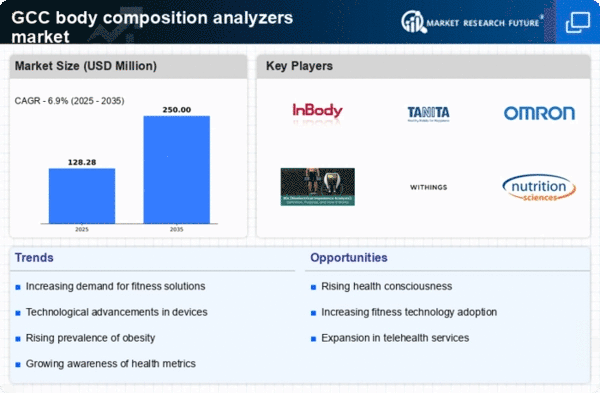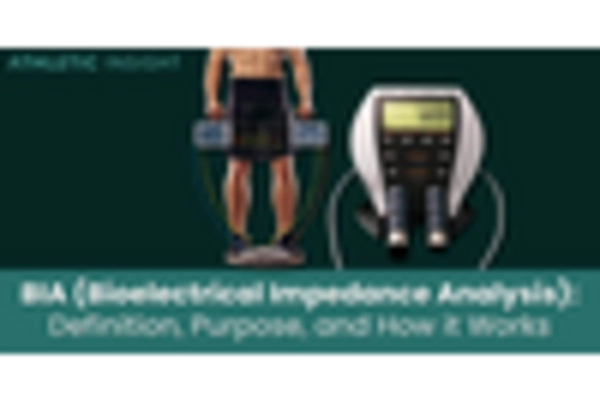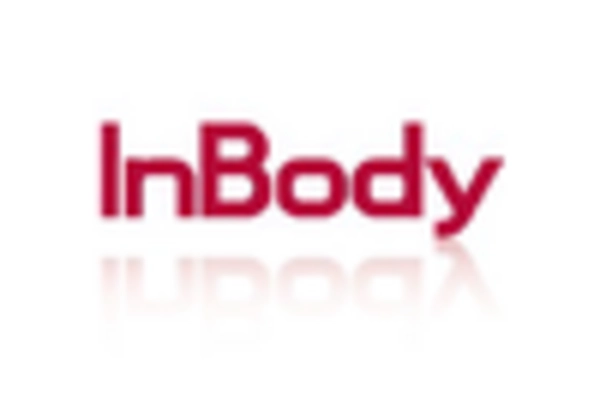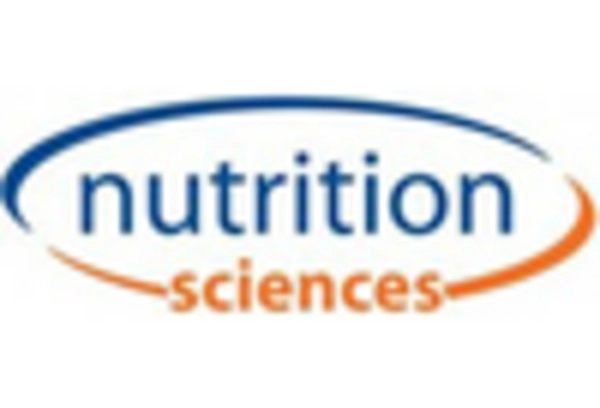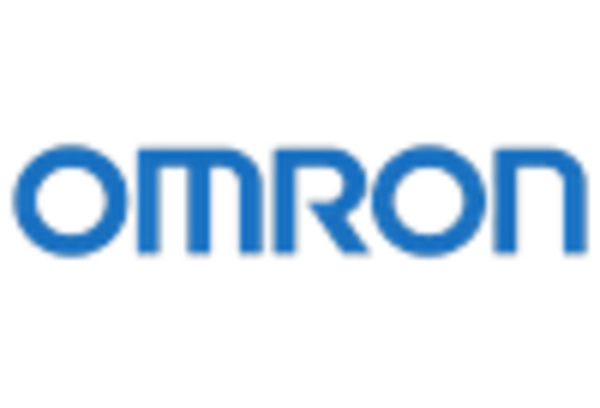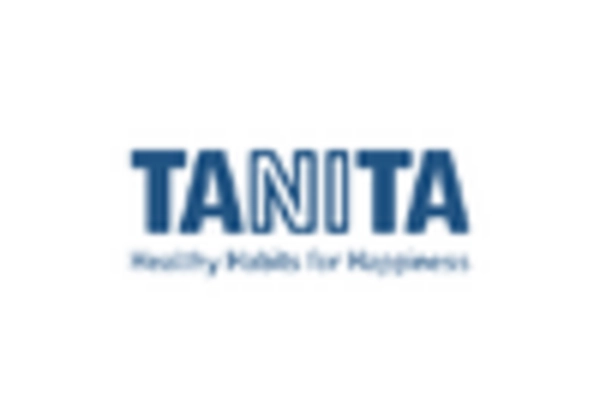Rising Prevalence of Obesity
The rising prevalence of obesity in the GCC region is a critical driver for the body composition-analyzers market. With obesity rates climbing to alarming levels, there is a heightened awareness of the need for effective weight management solutions. Body composition analyzers provide valuable insights that can aid individuals in understanding their body fat percentage and muscle mass, which are essential for effective weight loss strategies. This growing concern over obesity is prompting healthcare providers and fitness professionals to recommend body composition analysis as a standard practice. Consequently, the market is projected to expand, with estimates suggesting a growth of around 12% in response to the increasing demand for obesity management tools.
Integration of Smart Technology
The integration of smart technology into body composition analyzers is a key driver for the market in the GCC. With the rise of the Internet of Things (IoT) and wearable technology, consumers are increasingly looking for devices that can seamlessly connect to their smartphones and provide real-time data. This trend is likely to enhance user engagement and promote regular monitoring of body composition metrics. The body composition analyzers market is witnessing innovations such as Bluetooth connectivity and mobile applications that allow users to track their progress over time. As a result, the market is expected to see a significant increase in sales, with projections indicating a potential growth of 15% in the next few years as more consumers adopt these smart solutions.
Increasing Demand for Fitness Solutions
The body composition analyzers market is experiencing a surge in demand driven by the growing interest in fitness and wellness among consumers in the GCC region. As individuals become more health-conscious, they seek tools that provide insights into their body composition, such as fat mass, muscle mass, and hydration levels. This trend is reflected in the increasing number of fitness centers and wellness programs that incorporate body composition analysis as part of their offerings. The market is projected to grow at a CAGR of approximately 8% over the next five years, indicating a robust expansion in the fitness solutions sector. Consequently, manufacturers are focusing on developing advanced analyzers that cater to the specific needs of fitness enthusiasts, thereby enhancing the overall appeal of the body composition-analyzers market.
Expansion of Health and Wellness Industry
The expansion of the health and wellness industry in the GCC is significantly impacting the body composition-analyzers market. As more consumers prioritize their health, there is a corresponding increase in the availability of wellness products and services, including body composition analyzers. This trend is supported by the proliferation of health clubs, personal training services, and wellness retreats that incorporate body composition analysis into their offerings. The market is likely to see a compound annual growth rate of 9% as businesses recognize the value of these analyzers in enhancing client services. This growth reflects a broader shift towards holistic health management, where understanding body composition plays a pivotal role.
Government Initiatives for Health Promotion
Government initiatives aimed at promoting health and wellness in the GCC region are significantly influencing the body composition-analyzers market. Various health campaigns and programs are being launched to encourage citizens to adopt healthier lifestyles, which includes regular monitoring of body composition. These initiatives often emphasize the importance of understanding body metrics to prevent lifestyle-related diseases. As a result, there is an increasing demand for body composition analyzers in both clinical and home settings. The market is likely to benefit from these initiatives, with an anticipated growth rate of 10% as more individuals seek to utilize these devices for health management.


